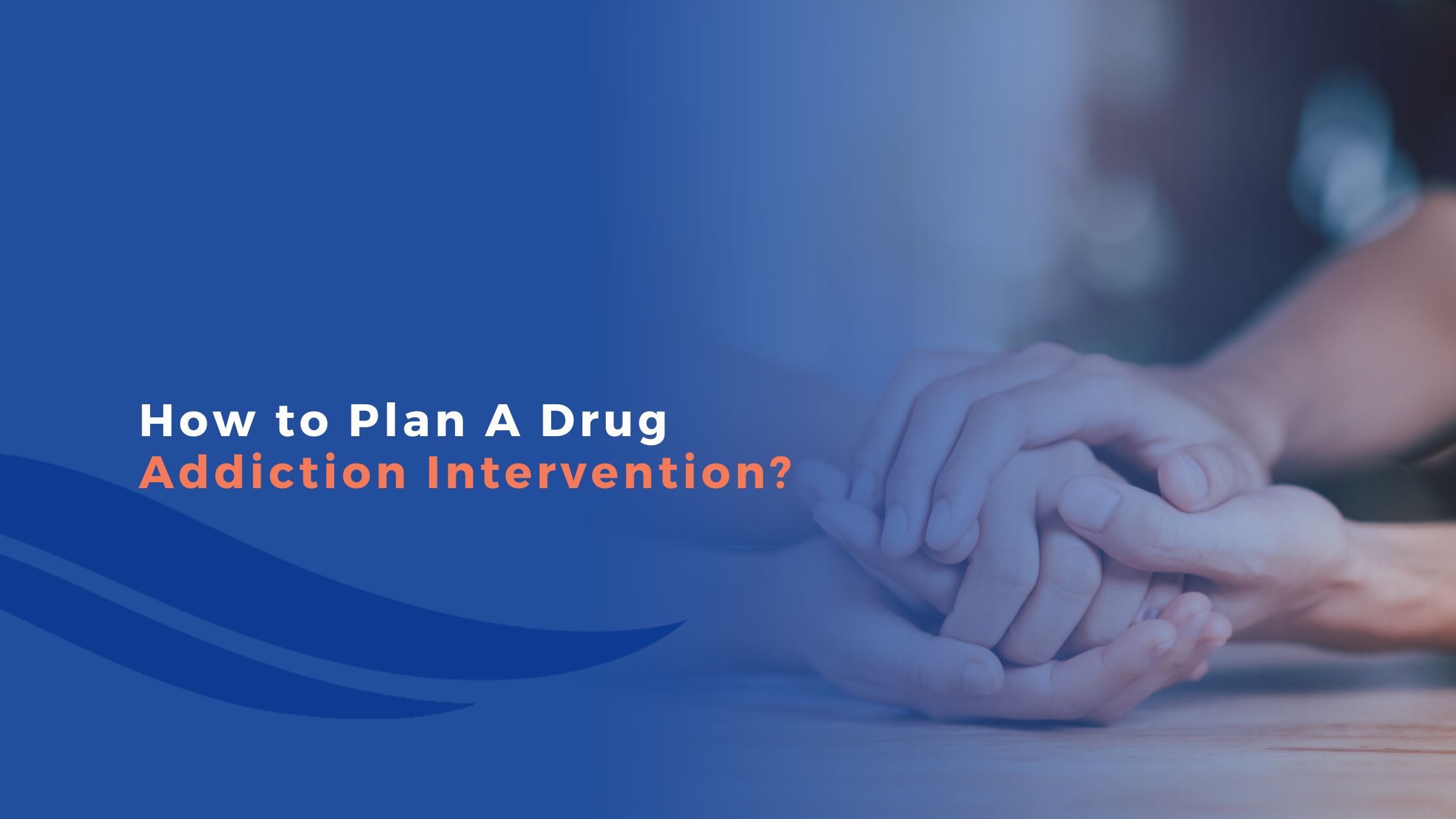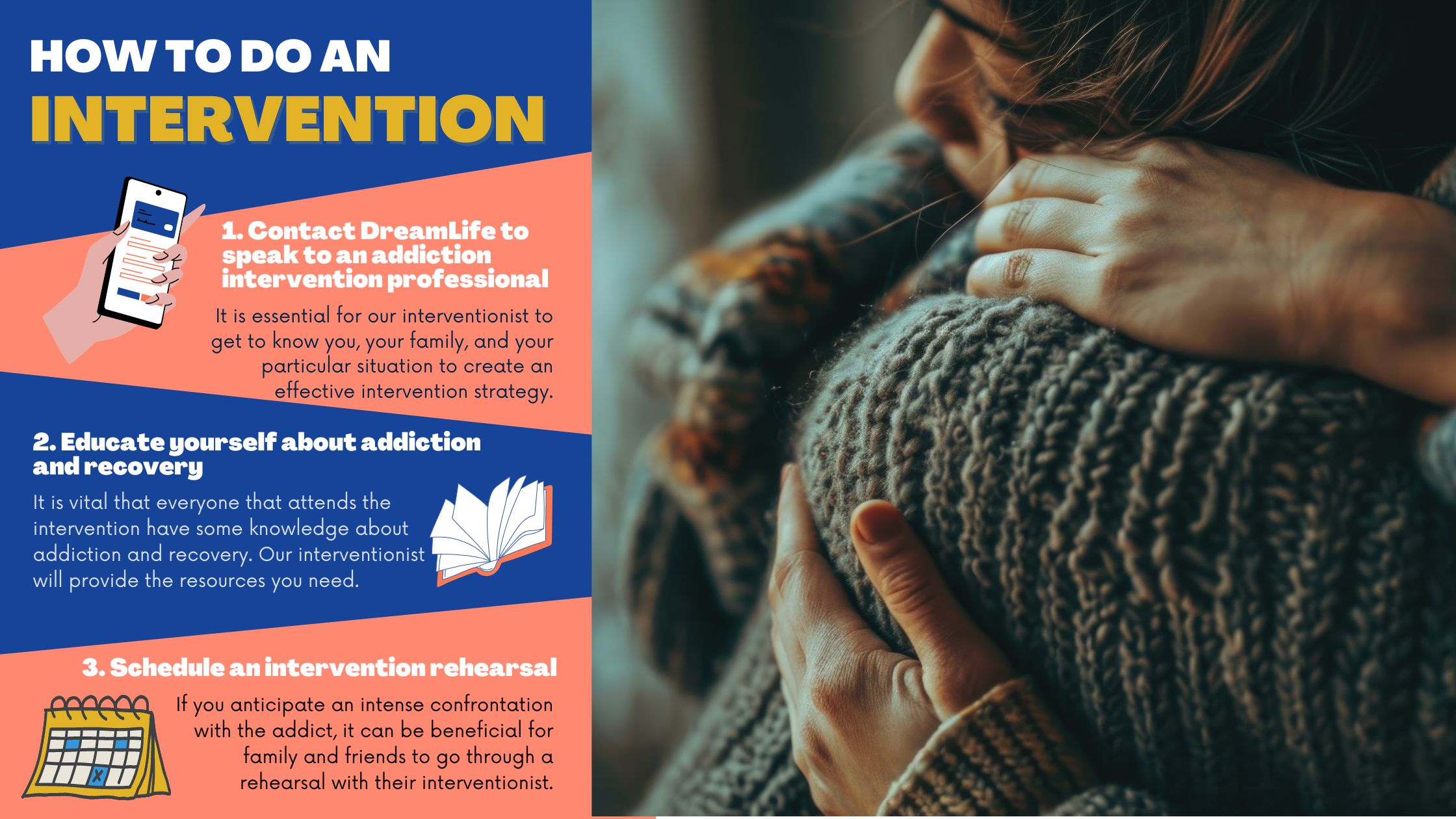How to Plan A Drug Addiction Intervention?


Written By
DreamLife RecoveryWatching a loved one struggle with drug addiction can be one of the most challenging experiences. It’s heart-wrenching, confusing, and often leaves you feeling helpless.
Fortunately, there is a way you can take proactive steps to help them – through an intervention. An intervention is a carefully planned process that can guide someone towards a path of recovery.
This article will provide a step-by-step guide on how to plan and execute a successful intervention. We’ll delve into understanding the right time for an intervention, choosing who should be involved, what to say, and how to ensure it leads to a positive outcome. Let’s navigate this sensitive journey together.
Understanding Drug Addiction
Drug addiction is a chronic disease characterized by compulsive drug seeking and use, despite its harmful effects. It involves changes in the brain’s wiring, particularly in areas related to reward, stress, and self-control.
The impact of drug addiction extends beyond the individual. It disrupts their physical health, emotional well-being, and social relationships. Prolonged drug use can lead to a cycle of addiction where individuals need to continue using drugs to avoid withdrawal symptoms.
For loved ones, it’s often painful to watch someone you care about struggle with addiction. They may experience a range of emotions, from confusion and anger to guilt and despair.
It’s important for friends and family members to understand that addiction is not a choice, but a disease that requires professional help.
It’s also crucial to remember that recovery is possible, and there are many resources available to help both individuals struggling with addiction and their loved ones. Education plays a significant role in understanding and addressing drug addiction.
The Goal of an Intervention
An intervention is a structured conversation between loved ones and an individual suffering from an addiction. It’s often supervised by a professional interventionist, who guides the conversation towards a constructive end.
The primary goal of an intervention is to help the individual recognize the extent of their addiction and how it affects them and those around them. This process aims to motivate the person to accept help and enter a treatment program.
Interventions can be emotional, but they are not meant to be confrontational or punitive. Instead, they are designed to express concern and love while offering a structured recovery plan. Ultimately, the objective of an intervention is to break through denial, encourage treatment, and start the journey towards recovery.


Steps to Plan an Intervention
An intervention isn’t something you should undertake lightly or without proper planning. It’s a delicate process that requires careful organization and preparation. Let’s break down the essential steps you need to follow to conduct an effective intervention.
1. Assemble an Intervention Team
The first step in planning an intervention is to assemble a team of individuals who are close to the person struggling with addiction. This group may include family members, friends, colleagues, or even professionals like therapists or intervention specialists.
Each member should be someone who has witnessed the effects of the person’s addiction and can speak about it from personal experience. It’s crucial that all team members are committed to the intervention process and are willing to express their concern without judgment.
2. Decide on Specific Consequences
If the person chooses not to accept treatment, it’s important to decide on specific consequences. These should be actions that team members are willing and able to follow through on.
For example, a spouse might decide to move out, or a parent might choose to stop financially supporting an adult child. The purpose of these consequences isn’t to punish the individual but to show them the seriousness of their situation and encourage them to seek help.
3. Make Arrangements for Treatment
Before the intervention, make arrangements for addiction treatment. Research different treatment options and choose one that is appropriate for the person’s situation.
This could be detoxification, residential treatment, outpatient programs, or counseling. Having a plan in place allows the individual to immediately enter treatment if they agree to seek help.
4. Rehearse the Intervention Process
Finally, rehearse the intervention process. This step helps ensure everyone knows what to say and reduces the chance of the meeting becoming confrontational.
The rehearsal may involve reading letters written to the person, discussing the order in which people will speak, and practicing responses to potential objections.
A professional interventionist can guide the team through this process, helping to prepare for various scenarios.
What to Expect During the Intervention
During an intervention, the person struggling with addiction may react in a variety of ways. They might feel shocked, angry, or defensive. Some individuals may deny their problem, while others might feel ambushed or betrayed.
To manage these reactions, it’s essential to maintain a calm and non-judgmental atmosphere. Each participant should express their concerns clearly and compassionately. Using “I” statements can help avoid blame and keep the focus on personal feelings and experiences.
If the person becomes aggressive or overly defensive, it’s crucial not to engage in arguments. Remember, the goal is to encourage them to accept help, not to win a debate. A professional interventionist can be especially helpful in these situations, guiding the conversation and ensuring it remains constructive.
Ultimately, patience, understanding, and empathy are key during an intervention. The process can be emotionally charged, but it’s a critical step towards recovery.
Get Professional Addiction Intervention Today
The battle against addiction often requires professional guidance. An expert in addiction intervention can provide the structured approach necessary to motivate someone to seek help. These professionals bring years of experience and knowledge, which can be invaluable in managing the complexities and emotional charge of an intervention.
DreamLife Recovery is here to offer that expert assistance. Our team of dedicated addiction intervention professionals are ready to guide you and your loved ones through the process, providing support every step of the way. Don’t let addiction continue to damage the life of someone you care about. Take action today.
Reach out to DreamLife Recovery by calling (855) 384-5808 or filling out our contact form to schedule a consultation. It’s time to start the journey towards recovery.







